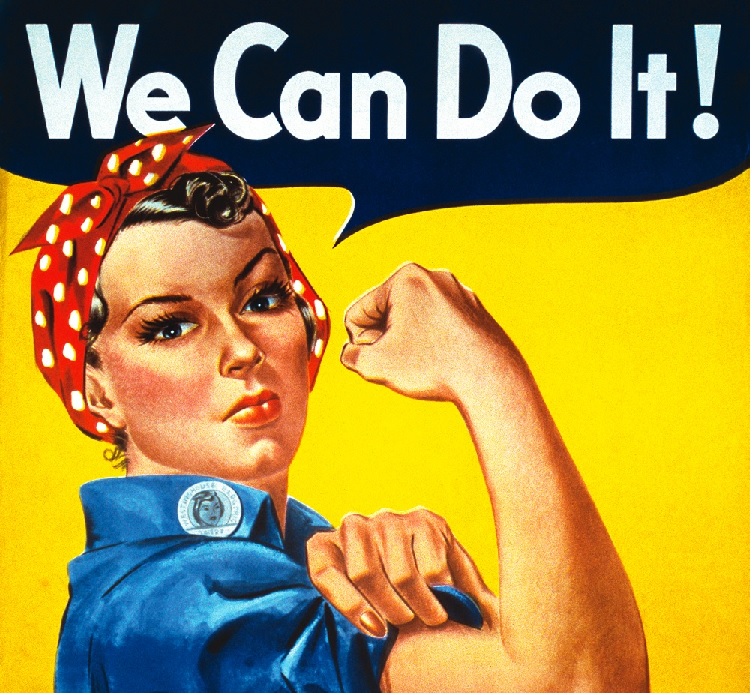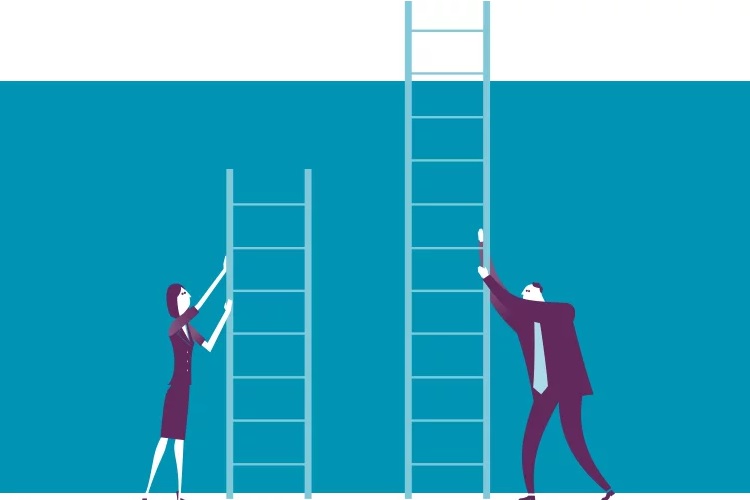Linden Kemkaran, Caroline Troy, Gillian Summers
In the UK in 2020, only 30% of University Vice-Chancellors are women. This may seem low, but the figure has doubled in the last 10 years. At the beginning of December last year, the University of Greenwich welcomed new Vice-Chancellor, Professor Jane Harrington, whose own research background includes gender equality in the workplace. Across the higher education (HE) sector in the UK, almost half of academic staff are women, though only a quarter of professors are women.
One way to redress this well-documented imbalance is for universities to sign up to and endorse the ‘Aurora’ programme, Advance HE’s inclusive leadership development initiative for all HE staff who identify as women. The University of  Greenwich has been a staunch promoter of Aurora for 6 years, with 37 ‘graduates’ of the programme (referred to as ‘Aurorans’), whose positive feedback fuels each new generation of applicants to the scheme. This seems particularly fitting this year, as UN Women’s theme for International Women’s Day is ‘#GenerationEquality,’ whilst IWD’s theme is ‘Each for Equal, forging inclusive workplaces so women thrive’.
Greenwich has been a staunch promoter of Aurora for 6 years, with 37 ‘graduates’ of the programme (referred to as ‘Aurorans’), whose positive feedback fuels each new generation of applicants to the scheme. This seems particularly fitting this year, as UN Women’s theme for International Women’s Day is ‘#GenerationEquality,’ whilst IWD’s theme is ‘Each for Equal, forging inclusive workplaces so women thrive’.
Aurora seeks to “support women and their institutions to fulfil their leadership potential through thought-provoking, collaborative, problem-solving activities and motivating stories supported by inspirational women role models. Participation embeds strong networks of early career women across the sector to share best practice, insights and experiences”.
During the programme’s sessions, Aurora participants explore four key areas associated with leadership success: identity, impact and voice, power and politics and core and adaptive leadership skills.
To mark International Women’s Day on 8th March, NRI’s Aurora alumni and current participants reveal what it’s like as a development programme and the impact it’s had on them.
Dr Frances Hawkes, a Senior Research Fellow and a Behavioural Entomologist, has just joined Aurora’s 2020 intake after hearing good things about it from several alumni. Frances applied to the programme as her role at NRI was steadily growing to incorporate more leadership responsibilities and she wanted to consider how she approached that.
At her first Aurora meeting, the participants were told that “no-one here needs fixing”, and that the initial focus would be on developing an authentic leadership style based on each person’s own identity. Frances found that “very powerful”. She says: “I came away with a huge amount including some very practical skills, and it was great to talk with such talented, inspiring and resilient women. There’s already a lot I’ve learned from their experiences and I’m grateful to them for sharing how they’ve overcome discrimination and unconscious bias. I’m really excited for the next meeting!”
In 2014, Hanneke Lam, then an Early Career Researcher Economist and now Director of Agrinatura EEIG, attended her first Aurora meeting, despite suffering from ‘imposter syndrome’ when faced with a room full of apparently confident, strong and talented women. She says it became clear that almost everyone, no matter their position, was facing similar challenges and concerns in their career development and she remembers it felt good to have the opportunity to share stories and to be encouraged to reflect on one’s own experience and be given tools to grow in leadership.
Hanneke explains: “where the Aurora programme excels in is that it addresses the issues that are specific to women in (aspiring) leadership roles. For various reasons, women are still under-represented in leadership positions in higher education and the programme supports women and their institutions to break this pattern and fulfil their leadership potential. For me it left me feeling that “I can do this!”
 Senior Social Scientist Dr Pamela Katic, applied for the Aurora programme in 2019 because she was facing new leadership roles and didn’t know where to start to address the challenges, or what tools were available to deal with certain situations. For Pamela the first session was the most useful and memorable: “we had a theatre director shed light onto the importance of how we physically present ourselves to others, our voice, our posture, our expressions, etc. I’d never realised how important certain things are!”
Senior Social Scientist Dr Pamela Katic, applied for the Aurora programme in 2019 because she was facing new leadership roles and didn’t know where to start to address the challenges, or what tools were available to deal with certain situations. For Pamela the first session was the most useful and memorable: “we had a theatre director shed light onto the importance of how we physically present ourselves to others, our voice, our posture, our expressions, etc. I’d never realised how important certain things are!”
Pamela found the mixed approach of the programme, the combination of lectures, networking opportunities, virtual community exchanges, group work and mentorship sessions, particularly useful. However, as a mother of two young children, she found the ‘lean in for success’ aspect favoured by some of the lecturers not as inspiring, she explains: “I would have liked to hear from women who were successful in balancing work and their personal life. Almost all of the lecturers had very useful things to say about how to advance your career, but none of them gave pointers on how to strike a healthy work/life balance and I don’t want to have to sacrifice my health or personal life to achieve career success.”
For NRI’s Marketing and Events Manager, Caroline Troy, a chronic lack of self-confidence led her to sign up. Bullied at school, Caroline was withdrawn and felt that although she was effective and efficient at her job, however, she doubted her own ability and lacked the self-belief to build on her career.
After a few false starts, Caroline eventually signed up for Aurora in 2017 and she vividly remembers the terror of her first meeting: “I looked around the room and felt completely out of my depth. Everyone looked so focussed, accomplished and confident, and here was me desperately trying to pretend. I listened with interest to the presentations but at the coffee break it become too much and I needed some fresh air. I was petrified. How could I possibly fit in with all these accomplished women? What did I have to offer? What on earth was I doing here? However, looking back on that day, I learnt two things that will stay with me forever. The first is I don’t have to fit 100% of the criteria when I see a job advert in order to apply, and the second was a realisation that it was all women who had positively affected my career and working experience.”
Gillian Summers, NRI’s Communications Specialist, who joined Aurora in 2017, said, “overall, the Aurora programme made me realise the skills, competencies, and knowledge I already have – and how to use them effectively.” She  related how, at a University-led Aurora group, alumni discussed sharing the valuable lessons learnt with male colleagues across the institute, especially regarding leadership versus ‘management’.
related how, at a University-led Aurora group, alumni discussed sharing the valuable lessons learnt with male colleagues across the institute, especially regarding leadership versus ‘management’.
Gillian credits Aurora for giving her an invaluable network of like-minded women professionals who are interested in becoming true leaders. She explains: “the idea that we, together, can change the culture of Higher Education is a breath of fresh air – you could almost see the realisation dawning on the women present. As well as a shift in mindset, the programme gave me concrete, solid advice, tips and strategies for bringing about changes in my job, department, institute, university and career going forward.”
Over the past six years, 5,895 women from over 175 institutions across the UK and Ireland have participated in Aurora and the women from NRI have benefitted from being part of a supportive and empathetic group of professionals.
Caroline Troy, a “shrinking violet no more”, deserves the last word as she is now actively and enthusiastically taking on tasks at work that she’d never have dared to before. “Aurora has taught me to view things differently, think differently, and more importantly act differently. I hoped to just gain confidence from Aurora, however I gained an awful lot more.”
Aurora participants: Dr Frances Hawkes | Dr Pamela Katic | Hanneke Lam | Gillian Summers | Caroline Troy
To find out more about:

